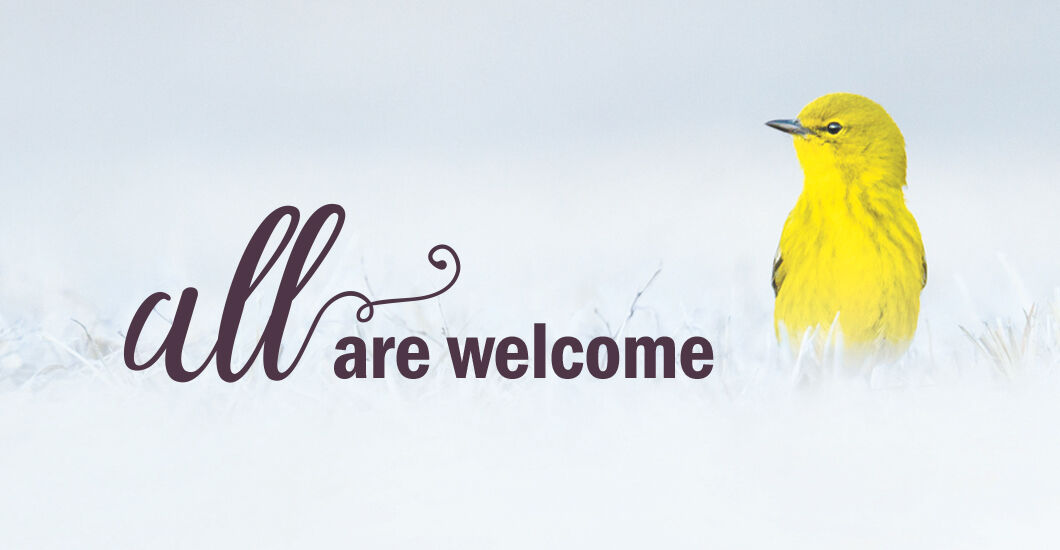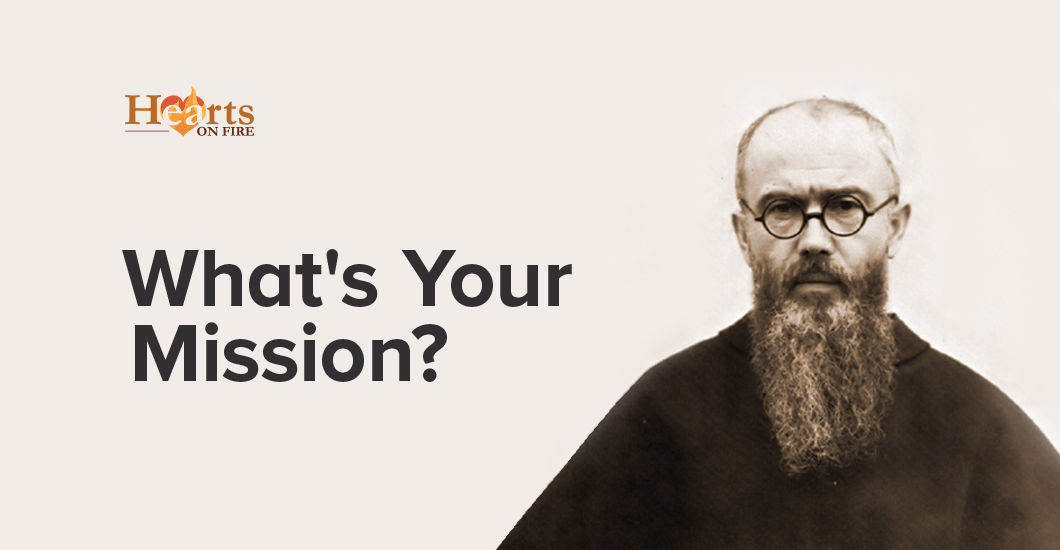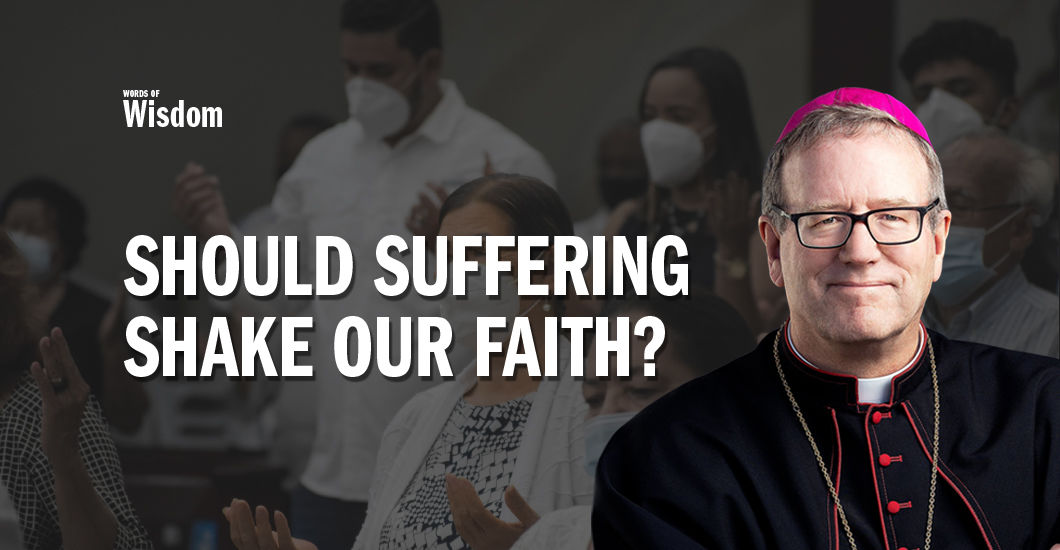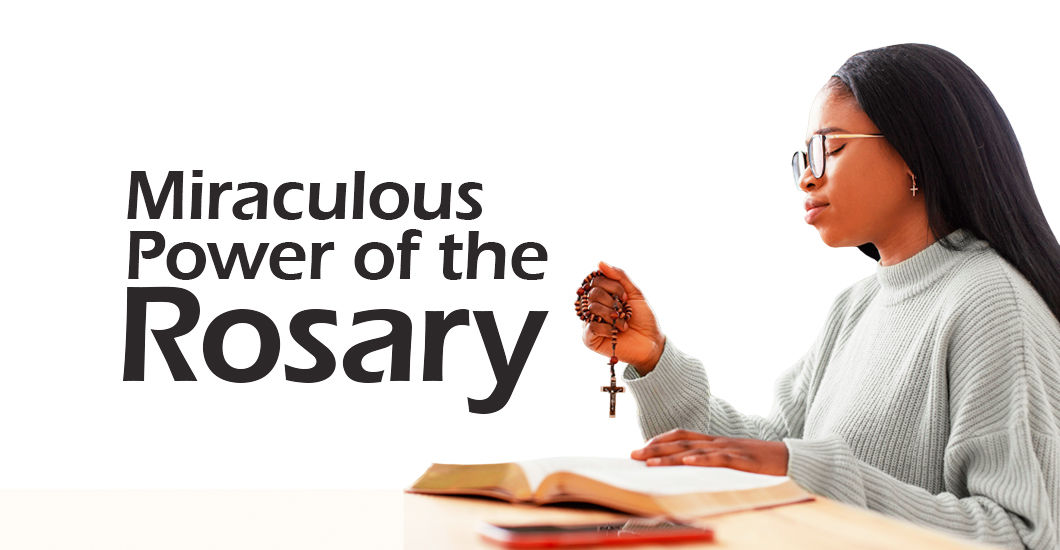- Latest articles

Get a whole new perspective through the eyes of the ultimate observer
Who is the observer? When I consider this question in prayer, I realise that I observe God’s love and mercy from a very interior and personal point of view when He allows me to witness His good works by acting through me. God’s witness is never clearer than in my role as a nurse. I see people every day when they are at their lowest and most vulnerable. In those moments, God whispers, can I come forward? When I surrender and give Him my yes, His Spirit moves through me to touch the people I care for: I feel my gaze soften to rest on the face of my patient, and I know that He is looking through my eyes. Suddenly, the right words are on my lips and I know that they come from Him.
The response from my patients is unmistakable. Their faces change and there is a peace and light about them. In those moments, I believe that I become the ultimate observer of God’s supernatural love and mercy in my patients encounter with Him. These interactions with my patients have nothing to do with me, and everything to do with God carrying out His Will through me. This can only happen when I step back from myself and allow my personal relationship with God to deepen. But it doesn’t end there. He then calls me to share that relationship with others.
Where It All Began…
When I was baptised at Pentecost last year my personal relationship as an adopted member of God’s family began. My response to God’s call was immediate and absolute. From that day forward, I became irrevocably devoted to Him. This devotion led me to understand that I can do nothing without the presence of Christ and my need for Him in my life surpassed any other need that I had. He met me where I was, totally exhausted and needing His help, and in all my imperfection and nothingness, I surrendered everything to Him. I purposefully gave Him absolute control over my life, including my marriage, friends, family, pets, career, finances…You name it, He now owns it!
My personal prayer to Him throughout the day became not my will, but Yours Lord as I began to shed layers of my old self. As a result, God transformed me inside and out. I experienced healing from my longstanding C-PTSD and various pain related ailments. People started responding to me in positive ways. Teachers crossed my path when I needed them, my already happy marriage improved beyond imagination, negative influences gently fell away without conflict, and I felt at peace. More importantly, I felt God’s presence by my side, and I began listening for His voice.
It has always been more natural for me to listen than speak to Our Lord and each day I sacrifice my time to contemplate the Face of Jesus and simply let His words flow over and within me. I believe that God Our Father desperately wants to have a personal relationship with each of us and He wants to share His burdens with us. He reveals this when we devote our time to Jesus.
Part of devoting time to Jesus is surrendering our will to Him and letting Him work through us to deliver people from their afflictions. It has been said to me that associating with sinners is against their religious values, however I wonder how we expect Jesus to continue healing the afflicted if we do not make ourselves available for Him to work through us?
Changed Forever
We don’t need to be nurses to let God touch others around us. We all have friends, family, co-workers, and acquaintances that need God’s healing love. Each time we surrender to God, we are saying not my will but Yours, Lord and our spirit connects with His. This is how God meets us. We were created to live in intimacy with God, to pray without ceasing, to live in a place of worship. As we move into this way of living, we become introspective. We receive the deep unconditional love of God, and we are forever changed. We can’t go back because we are transformed as His love for us shifts from superficial head knowledge to a deep heart revelation that becomes the very core of our identity.
At the heart of relentless love, is a lifestyle of prayer, worship, justice, and discipleship. All of this starts with surrender and dying to self: in other words, we are being crucified with Christ. Becoming the observer of God’s awesome power is firmly grounded in love. It takes place when we surrender and release the love of God, bringing restoration to people and circumstances. We love, because He loved us first, and as we release the love of God, justice flows.
We release God’s love and become His witnesses when we feed people who are hungry, when we share our faith with people, when we prophesy, when we release the supernatural power of God to bring healing, when we live with mercy, humility, and obedience. Becoming God’s observer expresses His love to the world by allowing Him to work through us, and then people encounter Him.
'
It is the little things that matter…
Our long-anticipated visit to Denali National Park in Alaska was almost upon us. We purchased tickets for the following day’s eight hour bus ride where we hoped to see the splendor of creation and an abundance of wildlife. Checking the weather forecast for our adventure, we were more than dismayed to learn precipitation was predicted to be 100% for the entire day! As disappointed as we might be, my husband and I decided it would be wise to change our plans completely, knowing there would be little chance of encountering anything but the inside of a bus on such a rainy day. Thus, it might be said that the next morning we ended up on a lark at Creamer’s Field Migratory Waterfowl Refuge in Fairbanks.
Perfection in My Hand
The knowledgeable volunteer docent leading our small group tour began by telling us facts about the sand hill crane, one of the species of birds which depend on the Refuge to feed and rest each fall en route to their wintering grounds to the south. We were astonished to learn that the trachea of these cranes was seven feet in length, wrapped in a convoluted fashion, much like the coils of a French horn. This design resulted in a distinct call, unique to the mother bird’s offspring, which allowed both to remain connected amid the vast throngs of cranes flying in formation each season. Just then a rush of these sleek gray birds rose up in the distance as we watched quietly.
Tramping over the dew-laden ground, we then headed toward a tent where both volunteers and an ornithologist were busily weighing, measuring and tagging various species of birds in order to track populations over a period of years. After each bird was identified and their information recorded, it was time to release them back into the wild. As a worker handed a songbird to a member of our group, a palm-to-palm transfer was made, at which time the captured bird quickly took flight. When it was my turn, reaching out my palm, a yellow warbler was laid onto its back as my fingers cradled its small body. Unlike the two birds before, this one seemed to settle in, allowing me to stroke it’s feathers as our eyes locked.
Suddenly there was a palpable Presence, as the tenderness of the Creator in this less than three inches of perfection in my hand was evident. The tears began to flow as the refrain of a song began to play in my mind as if synchronized, “All are welcome in this place, here in God’s amazing grace, all are welcome, all are welcome.” Time stood still, yet it could not have been more than a few seconds before I was urged to help the bird roll onto its side. That was all the encouragement needed, as the bird made its way into the sky. Trudging back to the car, silence was my companion. A sacred hush seemed the only appropriate response to this moment of grace.
Open Arms
The second stop on our agenda-less day was to an assortment of buildings that had been moved to Fairbanks to recreate a pioneer village. Wandering among the cabins and shops, I came upon a simple church. Opening the door, I walked past the rough-hewn plank pews toward the carved depiction of Jesus hanging from the ceiling. Hands outstretched, as if inviting those who entered to come in, the song’s lyrics lilted once again in my head. “All are welcome in this place.” Again and again this day I had unexpectedly encountered evidence of the lavish love of the Author of life. The care with which a sandhill crane’s call was designed, linking mother and baby; the yellow warbler, able to fly and sing yet weighing less than an ounce; the open palms of caring folks that both receive to give care, then release in trust. Finally, the reminder as I looked up, of the invitation being extended through the hands offered to all who choose to enter into God’s amazing grace.
Always, all are welcome…
'
A special interview with Dr. Thomas D. Jones who went on four separate shuttle missions with NASA. On one of those missions, he was actually able to take the Eucharist with him!
Tell us about what it was like to be out in space looking out at the stars and back at the Earth. How did that impact your faith in Jesus?
To realize my professional dream of flying in space, which every astronaut hopes for, I had to wait for almost 30 years. So my first flight was the realization of a childhood dream. Gazing out at this immense view of the cosmos surrounding our home planet, gave me a chance to think about why I was there. It was such an emotional experience to truly see the incredible beauty of the universe, and our home planet in all its lovely variety— really breathtaking. I just felt so thankful to God for the chance to be there physically—overwhelmed by His grace and Presence.
You are known as one of the astronauts who was able to bring the Eucharist into space. For all of us who are believers, that is just so inspiring. Could you share that whole experience?
It was certainly amazing to all of us who participated. One can’t go anywhere as remote as space and forget about your spiritual life. It is faith that helped me succeed on Earth and this is the same faith that I was counting on to help me succeed in space. On my first flight in 1994, aboard the shuttle, Endeavour, there were two other Catholic astronauts. When we got together to prepare for the 11 day mission, we talked about how wonderful it would be to take the Eucharist with us into space. So, because Kevin Chilton, our pilot on the flight, was an extraordinary minister of Holy Communion, we were able to receive permission from our pastor to bring the Blessed Sacrament with us.
Every moment of the eleven-day-flight was tightly scheduled, but our Catholic commander, Sid Gutierrez, was able to find a spot about seven days in, when we were comfortable with how the mission was going, for a ten-minute Communion service. So, on that Sunday—our second Sunday in space— we took a pause from all the business of the mission to spend ten minutes alone in the cockpit with the God who had made this all possible, and share Holy Communion with Him. Indeed, it was a recognition that we could never have reached that point without His presence among us. It was really satisfying to bring our faith-life into space and to know that He was there, physically, with us.
Have you ever found it difficult to bring Science and Faith together? Could you elaborate on the relationship between science and faith?
Throughout my professional career, I have known many scientists who are spiritual, and they have their own faith practices. Right here in northern Virginia, I have met several Catholic scientists and engineers in my own church who share a strong faith. They believe in God’s Creation, and in the biblical inspiration of how we understand the universe.
I think most people have some spiritual elements in their lives. I have known astronauts who are not formally religious, but they were all moved by the spiritual experience of space travel. So I have found that most people are open to what the universe and the natural world around us reveal in terms of how we understand Creation. Scientists are so curious, like all humans, about the nature of the universe and what we can learn about it.
To me, this is a sign that science and spirituality go hand in hand. Our curiosity and interest in nature and how it functions, how the universe is put together and how it was created—that curiosity was given to us because we’re made in the likeness of God. That’s part of His personality imparted to us. So I think that this search for the truth about the natural world is a part of our innate nature as human beings.
I believe that the quest for knowledge is something that gives God a lot of pleasure—to see the creatures that He has made seeking out the secrets of how He has put the universe together. Mind you, He’s not trying to keep it a secret. He just wants it to be unveiled through our own efforts, ingenuity and curiosity. So, to me, there’s not a lot of conflict between Science and Nature and Spirituality. I think that people trying to separate them are attempting to split human nature into a rational half and a spiritual half. Of course, that can’t be done. A person is one human being whose nature can’t be separated.
On your space missions you were accomplishing, in many ways, the epitome of human achievement. Doing something really great, and yet encountering something so much greater in magnitude—the glory and the majesty of God’s creation… What was it like to have accomplished so much, while still recognizing your own smallness compared to God?
To me it all crystallized on my last mission. I was helping build the space station, doing three space walks to install a science lab called Destiny. Near the end of my last spacewalk, I was out on the very front end of the space station. Since I was ahead of our work schedule, NASA’s Mission Control let me hang out for about five minutes out there. By holding on to the front of the space station with my fingertips, I was able to rotate around so I could see the immensity of space surrounding me.
I looked down at the Earth, 220 miles straight down past my boots to the deep blue of the Pacific Ocean. I was floating there looking out to the horizon—a thousand miles away–and then the endless, black sky up above my head.
About 100 feet above me, the space station glowed like gold with sunlight reflected from its solar panels, as we silently fell around the world together. This amazing view was so incredibly beautiful that it brought tears to my eyes. I was overwhelmed by this feeling, ‘Here I am, a highly trained astronaut on this space station, cruising around the Earth, yet I’m just a puny human being compared to this vast cosmos out there.’
God pulled the curtain back a little bit for me, letting me see that magnificent vastness in a personal way. I felt, “Yes, you’re very special because you’re getting to see this view”, but was reminded of how insignificant we all are in the vast universe which God has created. Feeling important and being humbled at the same time was a gift from God. It literally brought tears to my eyes as I thanked the Lord, thrilled to be sharing this view with Him. Very few humans ever have the experience and privilege of seeing Earth from that perspective, and it was all thanks to Him.
There’s a lot of confusion in the world right now…a lot of darkness and suffering; but when you look at the world either from that very unique vantage point that you had in Space, or now in your current state of life, what’s giving you hope?
I think what inspires me is that we’ve been given very curious minds by God. We’ve got this innate curiosity and that’s made us problem solvers and explorers. So, even with all the challenges we are beset by today, whether it’s a pandemic, or the threat of war, or feeding seven billion people around the world, we’ve got the skills that we’ve been given and we’re called to put them to good use in order to solve these problems. There is a vast universe out there, full of resources. It challenges us, but if we look beyond our home world into the solar system and the universe, there are a lot of things that we can make use of.
Vast material resources on the Moon and nearby asteroids can supplement those we find on Earth. There’s a colossal supply of solar energy which could be harvested from space and beamed down to the world to help supply everybody with the power and electricity that they need to succeed. We’ve got the ability to ward off rogue asteroids that have often struck Earth, and because we’ve got space skills and the minds to develop a way to defend our planet, we can prevent these most terrible of natural disasters. So, we don’t have to go the way of the dinosaurs if we use the skills that we’ve acquired and put ourselves to the task.
We live in a world that encourages us to use our curiosity and intelligence to solve these problems. So I’m very optimistic that by applying our skills and the technology we develop, we can stay ahead of all these challenges. Look at the vaccine that we developed just this year to fight the virus. That’s a mark of what we can do when we put our minds to something, whether it’s putting a man on the Moon or sending the first woman to Mars. I think we’re in good shape for the future as well.
—-
ARTICLE is based on the special interview given by Dr. Thomas D.Jones for the Shalom World program “Glory to God.” To watch the episode visit: shalomworld.org/episode/an-astronauts-faith-drthomas-d-jones
'
Lucy was born into a rich and noble Roman family in Syracuse, Sicily. When her mother arranged for her to marry a pagan man, Lucy protested that she belonged only to Christ. To help win her mother to her side, Lucy prayed at the tomb of St. Agatha (another Christian virgin) that her mother be cured of an illness she had endured for many years. Her mother was miraculously healed and agreed not to force Lucy to marry. But the pagan suitor rejected by Lucy was infuriated by the whispers that “Lucy had found a better Bridegroom than him” (her Lord, Jesus!). In his anger, he denounced Lucy to Pascasio, the governor, as a Christian.
Pascasio seized this opportunity to humiliate Lucy in public and thereby discredit the power of Christ and His Church. Aware of Lucy’s vow of chastity, he was attempted not only to kill Lucy’s body, but to destroy the beauty of her soul as well.
The governor’s guards attempted to bring Lucy to a house of prostitution, but God made Lucy’s body so heavy that the guards were unable to move her. Next, she was sentenced to be burned, but even with oil poured upon her, Lucy’s body would not burn. Furious, the governor shouted to Lucy, “How are you doing this?” Lucy simply responded that it was not by her power but by that of Jesus Christ. Pascasio then ordered Lucy’s beautiful eyes to be gouged out. Even after this torture, she stood before him refusing to deny Christ.
Lucy sensed that her time of witness and martyrdom was near. Moved by the Holy Spirit, Lucy prophesied to the crowd telling them the persecution would not last much longer and the emperor would lose his throne. In a panic to silence Lucy, Pascasio ordered a soldier to thrust a sword through her neck. She won her crown of virginity and martyrdom on December 13, 304.
When Lucy’s body was carried to the cemetery they discovered that her eyes had been miraculously restored. To mark this miracle, Lucy is often depicted holding a dish that bears her eyes. Within decades, Lucy’s name was added next to Agatha’s name in the Roman Canon. Saint Lucy’s body rests in the Basilica of St. Lucy in Syracuse, Sicily.
'
The irresistible goodness of Christmas lasts more than just a day, if you put your mind to it…
The magic of Christmas has never failed to enrapture me no matter the circumstances in the lead up to the season. Some years, the awe and wonder kick in later rather than sooner, but once the Christmas spirit conquers me, there is no turning back.
The joy we experience from receiving God’s gift of His only Son sets the tone of this wonderful season. Being good almost becomes second nature for this brief but lovely time. While Santa’s list might be an obvious reason for the little ones, I’ve wondered what it is that makes us grown-ups feel this way and how might we bring to the rest of the year this inclination to goodness that we experience during the magical Christmas season.
A Stark Reminder
Last year my husband and I undertook a trip to regional Victoria. We visited a berry farm and while picking organic produce to take home, I had a chat with the owner. It was a pleasant cool day for summer, and we discussed how it had been the opposite a year before, with raging bushfires and drought conditions severely affecting crops and lives. As a volunteer firefighter, she had suffered the loss of a couple of her close friends while fighting those fires.
Saddened to hear this, I was moved even more when the farmer said she was “prepared to fight when called” should the bushfires strike again. As we left the farm, she picked up her little one and they waved us goodbye. The farm was undoubtedly the most memorable part of the trip and the resolute determination we witnessed was a stark reminder of how we all need to be willing to do good when it is required of us—no matter what the time of year.
Stepping Stones
Once we are past the Christmas joy of December and well into the new year, it might take a bit more effort for us to act on inclinations to do good. I usually find that busyness can abruptly take the steering wheel with no comfortable stop in sight. As various professional and personal priorities take over, I wonder if I can be as attentive to the Lord’s prompts as I had been while wrapping gifts and singing carols.
Our Lord, however, never slows down His pace—drawing our attention to a struggling local business, reminding us to call someone who is lonely, encouraging us to forgive, and inspiring us to give. My husband calls these God’s ways of helping us draw nearer to Him. I think of them as little stepping stones to God that we are blessed to receive.
Even if we manage to look past the busyness, there are often other deterrents that discourage us from responding to God’s prompts. For instance, when we see a call for aid, we might rationalize that our contribution wouldn’t make much of a difference or might not be well-received by the person in need. Or an inclination to make amends with someone who offended us might be deterred by a new trivial offense.
Fight the Good Fight
Despite the possible deterrents, those little tugs at our heartstrings never stop. Why? Because Jesus has overcome the darkness within and around us. His love and light are blazing bright, forever creating sparks of goodness. Acting on these prompts is up to us if we want to draw closer to His goodness. As our Lady of Fatima reminded us, our future is in God and we are active and responsible partners in creating that future.
If we remember that all the good that has ever happened to us, including our talents and blessings, are from the Lord, then we can respond willingly to even the slightest inclination to goodness that comes to mind. It is even more imperative today that we fight through the darkness, praying to our Lady for help to stay focused and strong to fight the good fight when called. It doesn’t take much to light up someone’s life, to bring Christmas hope and joy to them when they need it most, no matter whether it’s Christmastime… or any other time of year.
“Glory to God who shows His power in us and can do much more than we could ask or imagine; glory to Him in the Church and in Christ Jesus through all generations forever and ever. Amen.” Ephesians 3:20
'
Are you able to click timeless photographs that capture the heart and soul of the moment? Are you able to bring out the best that nature has to offer through your photography?
Be Shalom’s Favorite Photographer!
We need your eye for detail and a beautiful, vivid photograph to print on the inner cover of Shalom Tidings magazine.
Email your photographs to connect∂shalomtidings.org along with your social media handles, we’d love to tag you whenever possible.
For more details reach out to our social media team: connect∂shalomtidings.org
We’d be happy to help you out with any questions, queries or concerns.
Theme – Mother Mary Statues from your parish, grottos, or from around the world
Other Specs – Mother Mary’s statue in focus with background out of focus
Requirements:
Image Orientation – Portrait
Image Quality – 300 dpi (high resolution)
'
Raymund Kolbe was born into a poor, Polish farming family in 1894. As a child he had such a mischievous nature that no one would have guessed he would be called Saint of Auschwitz, Founder of the Militia Immaculata, Apostle of Mary and Patron Saint of the 20th century! One day his mother was so frustrated with his behavior that she yelled at him in exasperation: “Raymund, what will become of you?!”
This shook him to the core. Filled with grief, he went to a church and raised this question in prayer, “What will become of me?” Then he had a vision of the Virgin Mary appearing to him holding in her hands two crowns, one white and one red. She looked at him with love and asked him if he would like to have either. Raymund answered “Yes”, he wanted both of them.
The white crown of Purity came first, when he took the name Maximilian Kolbe and professed religious vows, one of which was Chastity. Back in the minor seminary, he often said to his classmates that he desired to consecrate his entire life to a great idea. Eventually he found the “Militia Immaculata” in 1917 with a goal to bring the whole world to God through Christ under the generalship of Mary Immaculate. In order to fulfill this mission, he sacrificed everything, and that brought him to the red crown of Martyrdom.
In 1941 Kolbe was arrested by the Gestapo and sent to the Auschwitz concentration camp. A fellow prisoner wept for his wife and children after being arbitrarily chosen to be locked in the starvation bunker when a prisoner escaped. Hearing this, Father Kolbe volunteered to take his place. During those terrible days in the bunker, he led the men in prayer, and encouraged them. During every inspection, while the others lay on the floor, Father Maximilian knelt or stood in the middle, looking cheerfully at the officers. After two weeks nearly all the prisoners except Father had died due to dehydration and starvation. On the eve of the feast of Mary’s Assumption into Heaven, the impatient Nazis injected carbolic acid into Father Kolbe who raised his left arm to calmly take the deadly injection. In 1982 Pope John Paul II canonized Maximilian Kolbe as a Martyr of Charity and “patron saint of our difficult century.”
'
Thanks for your interest in writing for Shalom Tidings!
Shalom Tidings seeks articles that portray stories of powerful conversions and profound God encounters. We are also looking for inspirational pieces on how to overcome fear, insecurity, loneliness and depression that many are struggling with these days and also a few practical tips to grow in your faith. You could write providing valuable insight on how to find more meaning and purpose in life.
Below are the answers to some frequently asked questions about submitting an article to Shalom Tidings.
FAQs
What should I write about?
To get a sense of the type of work we publish, check out our website.
As you can see, our articles cover all areas of spiritual life and how to handle difficult situations through prayer and devotion. You could write about a God experience that touched your life, a testimony of healing and deliverance, a conversion story, or even an everyday experience of God in your life.
Should I pitch you my idea before writing the article?
Sure! Pitch your idea by emailing our editor at [email protected]
(Note that we can’t guarantee publication until we review a completed submission. We’re happy to evaluate your pitch before you get to writing!)
When will I hear back from you after I send my pitch?
Please allow up to three weeks for our editor to respond to your pitch.
How long should my articles be?
Aim for 500 – 800 words. From time to time, we’ll publish longer pieces, and if that’s the case, we’ll let you know.
Should I write a headline?
That’d be great! We reserve the right to tweak it for SEO, style or just to make it more attention-grabbing.
Fun fact: We actually write approximately 5-10 headlines before choosing one for an article. If you want to suggest one or two potential headlines, that makes our job easier!
Will you edit my article?
Yes, we’ll edit for content and clarity, doing our best to preserve your voice. You’ll be able to see if there are significant edits and we’ll often work with you should these be required.
Have any tips for ensuring my piece is a fit for Shalom Tidings?
– Please write in the “we” voice as much as possible.
– Support your advice with personal experience or stories.
– Including sub-headings is much appreciated. (We love to use H2 and H3!)
– Only one space between sentences, please!
– Definitely avoid an ‘advice only’ column style writing.
– Considering our lay audience, delving into deep theology is not ideal.
How should I submit my article?
1. Submit your article as a Word document through the ‘Contact’ page.
2. Email it to our editor as a Word document to [email protected]
Should I include a photograph that can be used with the article?
If you have one, yes, please. Make sure they are high resolution. We reserve the right to use another image if the one provided by you does not work.
Should I include a headshot?
Yes, that would be great! We may not use it in the magazine but, we will use it on the website.
Can I include a bio?
Absolutely! There are a few items we need from you to build your author profile.
– Add your name, email, website and social media (Facebook, Instagram, Twitter, Pinterest) handles to the top of your article. If you don’t have one, just your e-mail ID works too.
– Include a 2-3 sentence bio at the top of your article. We’d love for you to mention how long you’ve been writing professionally and name-drop a couple of places you’ve written for so we can create a short bio and showcase your expertise and experience wherever possible.
Are you definitely going to publish my piece?
We reserve the right to not publish your article if our Editorial Council decides it’s not a strong fit for Shalom Tidings. You are then free to publish it elsewhere.
Can I repost my submission on my blog?
No. If we run your article on Shalom Tidings, we retain the rights to that content. We don’t allow republishing on your own blog or any other website. (Did you know reposting content can hurt SEO traffic results for everyone involved? We try to keep it tidy around here.)
You are more than welcome to share your article from shalomtidings.org once it is published.
Do you pay?
No; all of our writers are zealous evangelizers who wish to share Christ’s love and peace with the world.
What should I do after I submit my article?
Our editor will get in touch with you and let you know of the progress. If and when we publish it, we hope you’ll be active in the comments, responding to readers’ questions or thoughts. We also hope you’ll share your article on social media!
We look forward to your contribution!
Ready to pitch your idea or submit your article?
Before you submit your piece, please run through this checklist. Did you…
– Add your name, email, website and social media (Facebook, Instagram, Twitter, Pinterest) handle to the top of your article?
– Include your 2-3 sentence bio at the top of your article?
– Attach your file?
If so, you’re ready to submit!
For more information and any other queries, please drop us an email at [email protected] with the subject line ‘Article Submission.’
'
Premier Christian Radio in the UK just sponsored a survey that investigated how the COVID crisis has affected religious beliefs and attitudes. There were three major findings—namely, that 67% of those who characterize themselves as “religious” found their belief in God challenged, that almost a quarter of all those questioned said that the pandemic made them more fearful of death, and that around a third of those surveyed said that their prayer life had been affected by the crisis. Justin Brierley, who hosts the popular program Unbelievable? commented that he was especially impressed by the substantial number of those who, due to COVID, have experienced difficulty believing in a loving God. I should like to focus on this finding as well.
Of course, in one sense, I understand the problem. An altogether standard objection to belief in God is human suffering, especially when it is visited upon the innocent. The apologist for atheism or naturalism quite readily asks the believer, “How could you possibly assert the existence of a loving God given the Holocaust, school shootings, tsunamis that kill hundreds of thousands of people, pandemics, etc.?” But I must confess that, in another sense, I find this argument from evil utterly unconvincing, and I say this precisely as a Catholic bishop—that is, as someone who holds and teaches the doctrine of God that comes from the Bible. For I don’t think that anyone who reads the Scriptures carefully could ever conclude that belief in a loving God is somehow incompatible with suffering.
There is no question that God loves Noah, and yet he puts Noah through the unspeakably trying ordeal of a flood that wipes out almost all of life on the earth. It is without doubt that God loves Abraham, and yet he asks that patriarch to sacrifice, with his own hand, his beloved son Isaac. More than almost anyone else in the biblical tradition, God loves Moses, and yet he prevents the great liberator from entering into the Promised Land. David is a man after the Lord’s own heart, the sweet singer of the house of Israel, and yet God punishes David for his adultery and his conspiracy to murder. Jeremiah is specially chosen by God to speak the divine word, and yet the prophet ends up rejected and sent into exile. The people Israel is God’s uniquely chosen race, his royal priesthood, and yet God permits Israel to be enslaved, exiled, and brutalized by her enemies. And bringing this dynamic to full expression, God delivers his only-begotten Son to be tortured to death on a cross.
Once again, the point, anomalous indeed to both believers and nonbelievers today, is that the biblical authors saw no contradiction whatsoever between affirming the existence of a loving God and the fact of human suffering, even unmerited human suffering. Rather, they appreciated it as, mysteriously enough, an ingredient in the plan of God, and they proposed various schemata for understanding this. For instance, sometimes, they speculated, suffering is visited upon us as punishment for sin. Other times, it might be a means by which God effects a spiritual purification in his people. Still other times, it might be the only way that, given the conditions of a finite universe, God could bring about certain goods. But they also acknowledged that, more often than not, we just don’t know how suffering fits into God’s designs, and this is precisely because our finite and historically conditioned minds could not, even in principle, comprehend the intentions and purposes of an infinite mind, which is concerned with the whole of space and time. Practically the entire burden of the book of Job is to show this. When Job protests against what he takes to be the massive injustice of his sufferings, God responds with a lengthy speech, in fact his longest oration in the Bible, reminding Job of how much of God’s purposes his humble human servant does not know: “Where were you when I laid the foundations of the earth . . .”
Once again, whether they half-understood the purpose of human suffering or understood it not at all, no biblical author was tempted to say that said evil is incompatible with the existence of a loving God. To be sure, they lamented and complained, but the recipient of the lamentation and complaint was none other than the God who, they firmly believed, loved them. I don’t for a moment doubt that many feel today that suffering poses an insurmountable obstacle to belief in God, but I remain convinced that this feeling is a function of the fact that religious leaders have been rather inept at teaching the biblical doctrine of God. For if human suffering undermines your belief in God, then, quite simply, you were not believing in the God presented by the Bible.
I want to be clear that none of the above is meant to make light of the awful experience of suffering or cavalierly to dismiss the intellectual tensions that it produces. But it is indeed my intention to invite people into a deeper encounter with the mystery of God. Like Jacob who wrestled all night with the angel, we must not give up on God but rather struggle with him. Our suffering shouldn’t lead us to dismiss the divine love, but rather to appreciate it as stranger than we ever imagined. It is perfectly understandable that, like Job, we might shout our protest against God, but then, like that great spiritual hero, we must be willing to hear the Voice that answers us from the whirlwind.
'
The ROSARY is an intimate spiritual conversation you are having with the Blessed Virgin Mary and GOD to present your fears, your needs and desires. The Rosary gives YOU Spiritual Power to accomplish anything you want in life and overcome the impossible.
This meditative spiritual conversation can be done at anytime and anywhere you go. You can do it in a group setting or by yourself. You can pray the Rosary with your kids, with your spouse or the person you are dating, and with your friends. You can make it a family affair. You can also recite the Rosary while cooking, driving, taking public transport, waiting in line, or taking a shower. There are no limits to where you can pray the Rosary.
Every time you pray the Rosary, you become more spiritually empowered, you gain more healing, more confidence, more inspiration, more miraculous changes in your life, more spiritual awareness and more divine graces in your life. YES…the Rosary carries MIRACULOUS POWER!
Reciting the Rosary, gives you peace for yourself and for the world, and higher purpose, strength, victory, healing, miracles, serenity, clarity, determination, vision, unity and harmony for yourself and for your family. More blessings can enter your life when you recite the Rosary!
Every time you pray the Rosary, your Soul is refilled with renewed hope, inspiration, energy and healing. I am a testament to that. Each Hail Mary is a moment of Grace, a moment of Mercy, a moment of Healing, a moment of Hope, a moment of Gratitude, a moment of Humility and a moment of Surrender.
Whenever you have doubts, or you encounter an obstacle in reaching your goals; any time you feel lonely, depressed or anxious; every time you are feeling bullied, rejected or as if the whole world is against you, pray the Rosary fervently with belief and love in your heart to fortify your mind, body and soul. This spiritually empowering tool will encourage you not to give up on yourself.
Use the Rosary to make personal requests and to pray for the needs of others and the world, especially for healing. In that space of contemplation and prayer, as you offer your gratitude to God and the Blessed Virgin Mary for the events of the Gospel, you can receive the spiritual guidance you need.
If you don’t know about the Rosary, this is your chance to discover its power and give it a try!
The Rosary is one of the greatest legacies you can leave your children and a fantastic gift to share with your family and friends.
'
It goes in through the ear and straight to the heart!
An amazing way to refresh your soul today
My visits as a pastoral care worker, offering prayers through liturgy and music to nursing homes, especially in their high care area, are always fraught with mixed emotions. I am cautioned that these residents could go for hours, or even days without responding.
When I see the participants, frail and beaten by the battles of life, just waiting to go, their eyes, fixed on “nothingness”, there is a part of me that doubts that whatever I have prepared for them will bear much fruit.
Yet I have been proven wrong many times. As soon as Amazing Grace, How Great Thou Art, One Day at a Time and other much-loved hymns are heard, heads lift, eyes widen or blink, and tears flow down some cheeks.
Never Forgotten
Once, a frail gentleman, paralysed in a shell chair, grabbed my hand and held it tightly. I shed some of my own tears that day. Another, who had been reticent and hostile, cheerfully belted the song, over and over, in his splendid baritone until he was hushed by some residents who felt annoyed by his “noise” then gave me a blessed wink and thumbs up!
Studies on dementia reveal that music helps people in all stages connect with fond memories, and is proving to be good medicine. Melodies can be remembered long after names, faces and words are forgotten.
We sometimes forget the power of music in awakening that part of the brain— evoking responses, reconnecting with loved ones and improving focus. It increases happiness and decreases fatigue while lifting that haze—the veil that perhaps separates us from what we want to forget and what we want to remember.
The Clay Centre for Young Healthy Minds writes that music is the best studied of art therapy, and helps to lower anxiety, depression, trauma, psychosis and stress. Music helps heal.
Sing for Him
Bishop Brewer’s sermon on Sunday, October 4, 2015 shares some distinct purposes of music in our lives. He says that music teaches us the Gospel; connects us to God in unique ways; allows us to express our love to God with our whole being; and, if used for worship, fulfills God’s command. He further states that music that honours God will cause our hearts to sing. And when our hearts sing, worship happens. We are transformed on the inside.
I have found this to be true. I belong to a prayer group where praise and worship frames our services when we gather every Friday. For 23 years now, we have shared music together, drawing us into deeper fellowship with God.
Much of my own personal transformation has been facilitated by praise and worship. When I sing to the Lord, the Holy Spirit reveals truths about myself and my need for inner change. I become more aware of my need for God’s grace and shed tears of sorrow for my sins and joy for His victory over sin and death. When I am down and out, music brings me comfort; when I battle with afflictions, it gives me the strength and the faith to carry on; when I am joyful, music inspires me to dance and share my hope with others; when the devil tempts me, praise and worship stop him in his tracks.
The Base of Harmony
If you want to go deeper, read the article written by John Michael Talbot in the Music of God. He says, “God is perfect spiritual music. Many of the world’s major religions say that God created the universe through music. But the music they speak of is no mere earthly song. It is profoundly spiritual and mystical. The mystics say that in the supernatural state you can see sound, and hear color. This was our original mode, and will be again in Eternity. This harmonious music is part of God’s very being.
God is a perfect harmony of transcendent self-sufficiency and self-diffusive goodness and selfless love. This awesome balance and peaceful harmony is perfectly manifested in the Trinity of Father, Son, and Holy Spirit. It is perfect logic, but beyond the grasp of logic alone.” Another music writer indicates that harmony is ordained by God—the base of harmony is a triad, a threesome of notes that are in perfect unity with one another.
We might not have had much music in 2020, because of COVID 19—many of us have lost our rhythm in life, overcome by uncertainties, our lives torn by discordant notes of loss and doubts. But we are all encouraged that in year 2021 we should be reclaiming what we have lost and re-discover the hope, trust and faith that God ordained us to be—creation of harmony, peace and joy.
We might have been side-tracked by the corona virus pandemic, but let us be reminded once again of Revelation 5:8-9: “Now when He (Jesus) had taken the scroll, the four living creatures (angelic beings) and the twenty-four elders fell down before the Lamb (Jesus), each having a harp, and golden bowls full of incense, which are the prayers of the saints. And they sang a new song.”
Let us sing our old songs again, or create new ones as we continue to make music for the Lord, so we can join in the heavenly chorus. If we let go of our discordant false self, driven by noise and fear, and seek God instead, we will hear Him speak to us again in a peaceful melody of trust, glad tidings and gratitude.
'